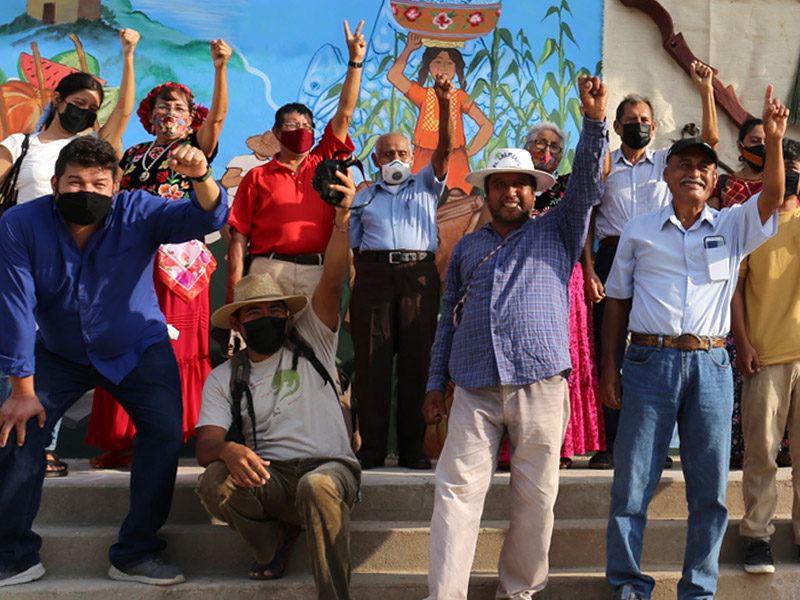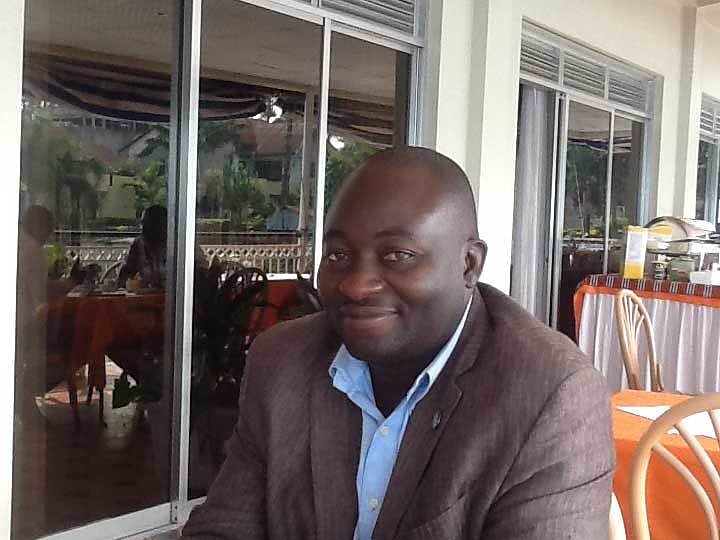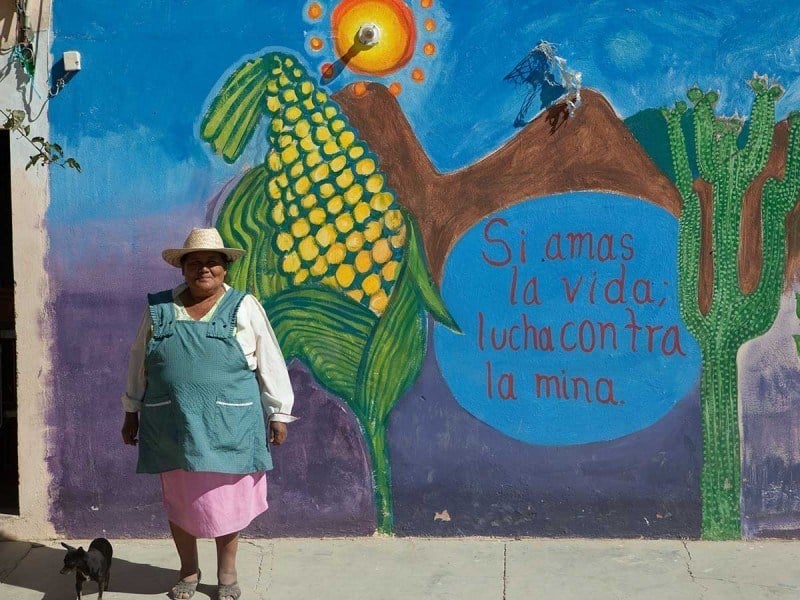According to the UN, women in the developing world make up 43% of the agricultural labor force but own only 15% of the land. While I find this figure unsettling, I can’t say that I’m surprised. Around the world, cultural views about gender pre-determine the way people exercise their rights, even in cases where everyone is officially “equal” under the law. In the 13 countries where AJWS supports grassroots organizations working to stop environmental exploitation, violations against rural communities’ land and water rights disproportionately affect marginalized social groups, especially women. But that’s why I’m proud to work here, where we believe that every person has the right to live free from the threat of violence and intimidation, and equal access to opportunity to live a full life.
In many sub-Saharan African countries, the growth of extractive industries like palm oil and natural gas have caused governments and corporations to disregard rural communities’ land rights in the name of “economic growth.” Women encounter double the obstacles, as they often face discrimination from the government and members of their own communities. Gender inequality also restricts women from leading or even participating in grassroots movements. As extractive industries continue to engage in land grabbing, women are less likely to have their voices heard and achieve justice.
Every day I am inspired by the female activists who are working to build women’s power and leadership within land, water and climate justice movements. Here are the stories of three grassroots organizations, supported by AJWS, that are fighting for women’s land rights in sub-Saharan Africa.
Standing up for women’s land rights in Uganda
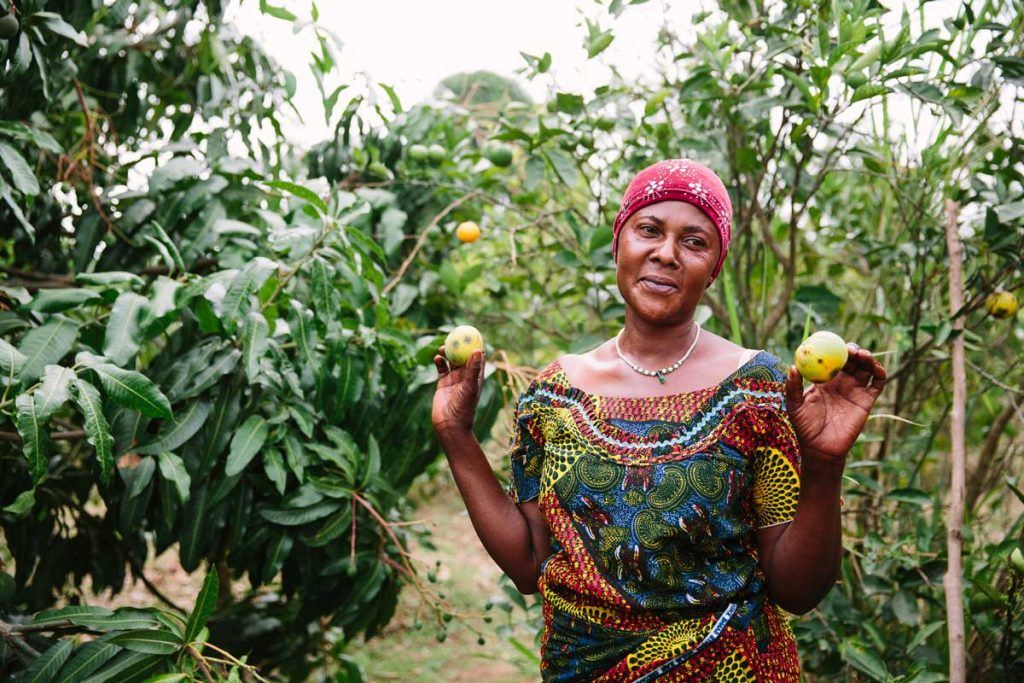
The Kwataniza Women’s Group (KWG) was founded in 2006 to raise awareness about the need to safeguard community land rights in western Uganda, where the oil industry is expanding rapidly. They conduct women-led local dialogues about land rights in Uganda to raise awareness about women’s land rights under Ugandan law. They also discuss threats to these rights as the local oil industry continues to expand and grow in influence. This knowledge supports women’s participation in local organizing efforts against the oil industry, and enables women’s groups to raise their own concerns regarding women’s land and property rights.
Advancing indigenous women’s rights in Kenya
Samburu Women’s Trust (SWT) has been working since 2009 to empower pastoral indigenous women and girls in northern Kenya to exercise their land rights. As the Kenyan government’s LAPSSET highway project expands across indigenous lands in the north of the country, SWT helps women and indigenous communities organize themselves and demand decision making power related to the mega project. Community meetings educate women on their rights to land compensation. Round table meetings with government officials grant women a platform on which to demand that their land rights be respected in the face of development projects.
Fighting displacement from the Inga Dam in the Democratic Republic of the Congo
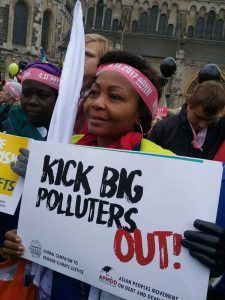
In the DRC, the construction of the INGA 3 Dam has been hailed in the international community as a major step toward electrifying the continent. It’s not the best news for local communities, though. The electric power generated by the dam will mostly benefit South Africa and extractive industries in the eastern part of the country, and will displace upwards of 60,000 people, none of whom were consulted about this project.
The dam will also significantly disrupt fish populations in the Inga River, a main source of food and income for women living in river communities. AJWS partner Synergies Femmes Solidaires (FESO) is a coalition of 24 women’s groups in the area advocating for equal energy access in the DRC, and the democratic participation of women in the broader movement against the development of the Inga 3 dam. Through their community organizing and advocacy work, FESO is working to bring women’s concerns to the national Inga dam advocacy scene, and ensure that women’s rights to the land and river are respected.
Women working to defend their rights deserve to be respected by their communities and their governments, and to do their work free from threats of violence and intimidation. At AJWS, we are proud to support women in 13 countries in the developing world who are working to increase women’s control over their land and water, which are crucial to their livelihoods. Learn more about our work on land and water rights and climate justice here.
AJWS’s work in countries and communities changes over time, responding to the evolving needs of partner organizations and the people they serve. To learn where AJWS is supporting activists and social justice movements today, please see Where We Work.

